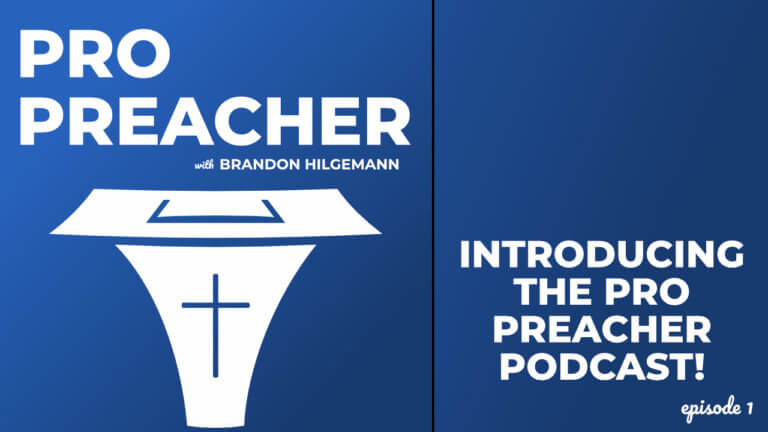Passion is a key ingredient to good preaching. Nobody wants to listen to a passionless preacher. However, passion alone doesn’t make a speaker good.
It takes more than passion to preach. You still need the fundamental principles of effective public speaking.
Watch this infamous video to see what I’m talking about:
Can’t see the video? Click here.
Phil is exploding with passion. Nobody can argue that. But he breaks some of the major principles of effective public speaking.
7 Thing We Can Learn From Phil
1. Vocal tone should match context. Phil doesn’t need to shout his bio or education. If I just met you and asked about your education, would you shout it? I hope not. Vary your tone based on how you would naturally talk about it in a conversation. Good messages always have moments of excitement and moments of calm.
2. Education alone doesn’t make a better speaker. Experience makes a better speaker. Phil has a masters degree in communication! Many pastors graduate seminary loaded with education, but lacking experience. So get as much experience speaking as you possibly can. Want to preach like a 10 year veteran? Get 10 years worth of experience.
3. Walking the stage is good, but pacing is bad. Your movement needs to be controlled. Pacing is distracting. It shows that you are nervous. Plus it is unnatural. Try pacing during your next conversation in the office and watch people’s reactions. Pacing makes other people nervous. Walk to one side of the stage and hang out there for a while. What’s the rush?
4. Don’t be tied to your notes. Phil has to keep looking at his notes. When he leaves the podium, he must immediately return to see what he wants to say next. Constantly looking at notes makes you look like you don’t know what to say. It shows a lack of preparation. And it makes the audience wonder if the speaker really buys what they are selling.
5. Build a connection with the audience immediately. Phil’s aggressive style doesn’t welcome us in. Frankly, it scares me. Engaging your audience and building a connection with them is crucial. Some of the best ways to do this is through a personal story, humor, or a good question. If you don’t connect with people in the first 10 seconds, you lose them.
6. Your eyes speak volumes. Good eye contact makes or breaks a talk. Your eyes don’t lie. The audience is looking at your eyes to judge if you are honest, or caring. Phil has angry eyes. It looks more like he wants to hurt you than help you. His eyes are also bouncing everywhere. Prolonged eye contact shows confidence and connects with the listener.
7. Don’t take yourself too seriously. This is the most important lesson. Sometimes you preach a stinker. We have all preached a bad sermon or two or ten. It’s OK. Laugh it off and learn from it. It’s OK to make mistakes. Just don’t keep making the same ones. Gain the experience and work harder next time to fix the problem.
I sincerely hope that Phil is able to look back at this speech and laugh. I guarantee he has learned something from his Youtube infamy. Hope you learned something too.
Are there any other lessons can we learn from Phil?







Thanks! I totally agree. Academic theory is nice to have, but it can never substitute for experience.
Great post and points. Besides being gut-busting funny, it is living proof that there is a world of difference between academic theory and practical reality 🙂